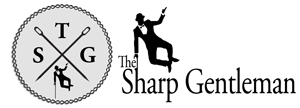Public Speaking & Pathways to Success with Julian Placino
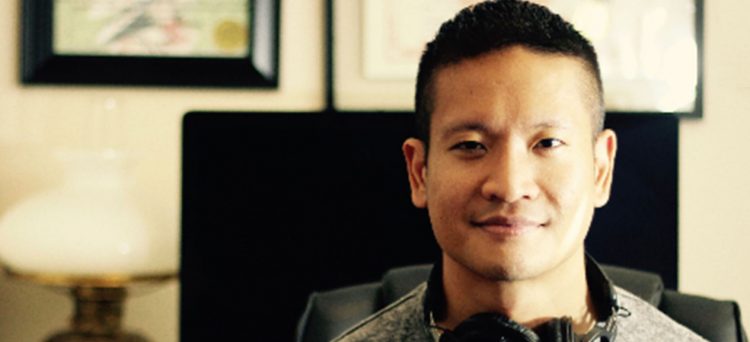
The Pathways to Success with Julian Placino
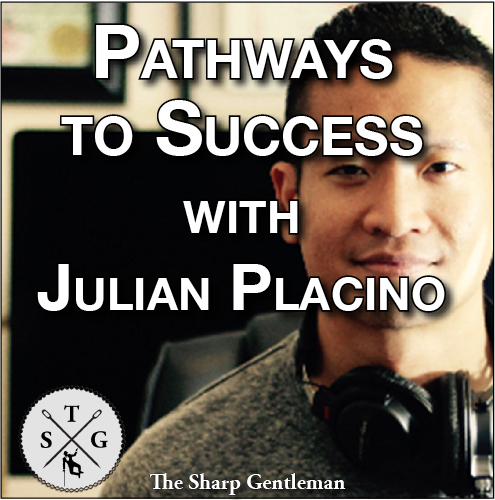 The Pathways to Success with Julian Placino Podcast is a weekly a show where Julian interviews leaders on business, personal development, health & fitness and many other topics designed to help you find your unique Pathway to Success.
The Pathways to Success with Julian Placino Podcast is a weekly a show where Julian interviews leaders on business, personal development, health & fitness and many other topics designed to help you find your unique Pathway to Success.
Although there are principles and commonalities of success, everyone has to walk their own path and craft their own story. How you define success might not be how someone else does. That’s why he invites a highly varied group of experts who have succeeded in many different avenues. On the show, he’s interviewed CEOs, millionaires, high-level entrepreneurs, bestselling authors, dynamic thoughts leaders, transformation experts and elite level athletes.
Having a deep recruiting background, Julian is uniquely qualified to attract top performers and conduct high quality in depth interviews.
In a matter of months, the show has been downloaded more than 10,000 times from over 43 countries and has achieved a 5 star rating in iTunes.
In this podcast, we’re talking about public speaking and making great first and lasting impressions, even as an introvert. We’ll dissect three keys to boosting your speaking acumen, and building the confidence you need to have an impact. [remember to Subscribe Here]
Show Notes
First things first – here are the important links we discussed during the show:
Website – http://julianplacino.com [The Pathways to Success with Julian Placino Podcast is here] When you’re there, sign up to receive his audio, The Three Proven Steps to Finding Your Pathway to Success.
Recommended Read: Outliers by Malcolm Gladwell: The Story of Success
When Julian and I got connected up to record, it was almost effortless. Sometimes you get the chance to interview someone that has such a wonderful energy and flow, and this was definitely one of those interviews. I know he brings a lot of value to his audience, and I hope he brings value to you as well. Listen above, or read the transcript below. Here’s a taste of Pathways to Success with Julian Placino.
Blake Hammerton (me) – Thank you so much for joining me on the Sharp Gentleman Podcast. I’m really excited to have you on the show to talk about the Pathways to Success Podcast that you’ve got, and then as we dive in, more about about the public speaking experience you have and making first and lasting impressions as an anxious guy.
I think that’s a really important topic to bring to light for a lot of my listeners who may not have that same kind of panache that they see around them, making them feel like aren’t capable of that level off success because they’re not that much of an extrovert. You know, are they doomed?
Going back to the beginning for a moment, tell me a little bit more about your story and how you got into and began the Pathways to Success with Julian Placino podcast.
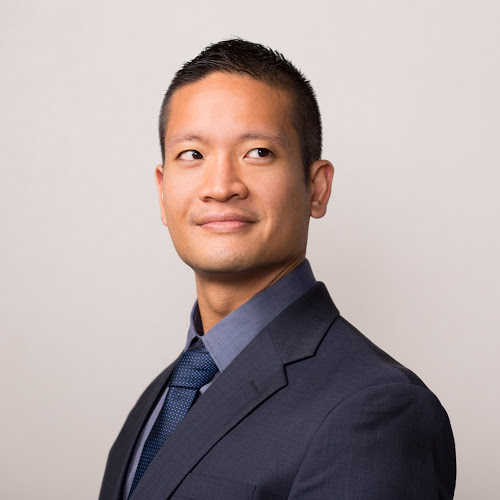 Julian Placino – First of all, Blake, thank you for the opportunity to come on your show. I’ll do my best to add value to your audience here. I’m the host of the Pathways to Success podcast where I interview experts on leadership, personal development, health and fitness, and many other topics I think will be helpful for people to find their own unique pathway to success.
Julian Placino – First of all, Blake, thank you for the opportunity to come on your show. I’ll do my best to add value to your audience here. I’m the host of the Pathways to Success podcast where I interview experts on leadership, personal development, health and fitness, and many other topics I think will be helpful for people to find their own unique pathway to success.
The podcast really resulted because I’ve been really entrepreneurial for the last few years, and pretty much everything I’ve done was really to make a buck. You know, I’ve done real estate, network marketing, I’ve done online businesses, and I made a pretty decent income doing those things, but I never necessarily felt fulfilled. I really wanted to start an endeavor that:
1 – I really loved to do
2 – I was good at and uniquely qualified for
3 – I really felt would help people
And, I didn’t want to put money as part of the equation and skew my motivation. I asked myself what something like that might look like. I’ve always loved having interesting conversations with interesting people, because we can kind of deconstruct some of their successes and learn their lessons and apply them to my own stuff, and what I realized was that value was being created in the form of advice, specialized knowledge, and even some entertainment. I figured, why not capture these lessons and share them with people so everyone could benefit?
Well, the podcast has been live since March, 2016, Ive published 40 episodes now, I’ve recorded 55, and I’m booked through the end of March, 2017 right now with guests to come on the show, and it’s been a huge success. I’m so grateful for doing it. It is the one thing that I love that seems to be continually opening up opportunities for me. I love the experience.
BH – That’s so great, and it feels like when you finally tap into something that fulfills you –not just pays the bills or makes you feel like you’re getting ahead of the curve– you find that it motivates you to work harder, to stretch yourself, to begin understanding how you can work smarter and cut off some of the things that you waste time on. Through those pathways, there’s where the money comes in.
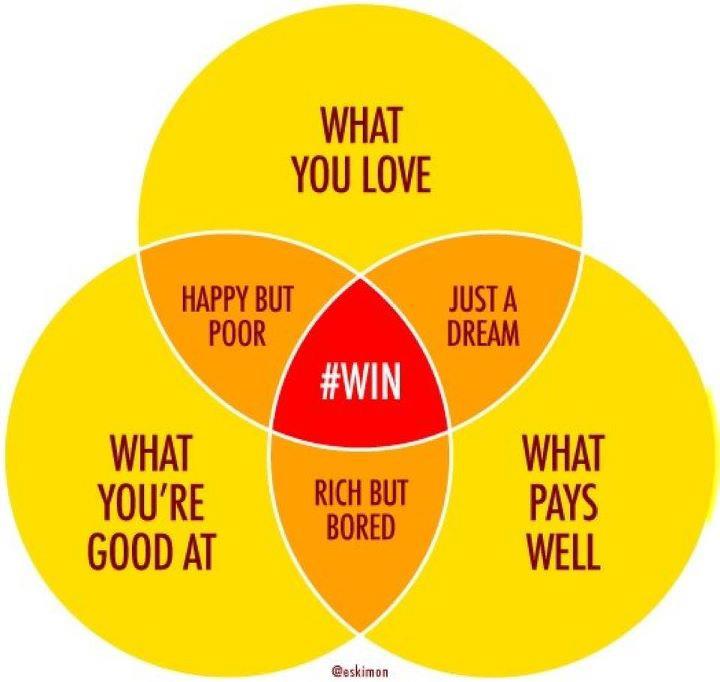 Suddenly, it becomes an avenue through which you can pay bills and expand your wealth and influence and continue fulfilling yourself. That is the coolest part about stepping away from making a buck and doing all the things you think will get you some place, and instead focusing on just the core bits of “something I really love, something I’m really good at, and something through which I can help other people.”
Suddenly, it becomes an avenue through which you can pay bills and expand your wealth and influence and continue fulfilling yourself. That is the coolest part about stepping away from making a buck and doing all the things you think will get you some place, and instead focusing on just the core bits of “something I really love, something I’m really good at, and something through which I can help other people.”
Those three things right there are paramount.
JP – And you know what, Blake, it doesn’t even feel like work to me. Look, I know what it’s like to grind. I know what it’s like to create effort and create work for the purpose of creating a specific outcome, in this case, just making money. But you know, I produce the podcast every Saturday and it’s not work. I really genuinely love connecting with other people and that’s why I think it’s so special. That’s why one of my core messages is truly to DO something that you love to do –whether it makes money or not– because something like that really feeds your soul.
At least in my case, it helps me to access flow states and to really become the best version of myself. One of my core messages to the world is I think everyone was born with unique gifts and talents. I think it is our obligation to discover what those are, develop them to the highest capacity, and use them to serve other people. In that way, you create a unique piece of value that only you can. You know what I mean?
BH – Right! It’s so cool because I talk about leaving a legacy with my audience and clients all the time. People talk about leaving a legacy when they die and I think that’s just the wrong approach. It’s so future oriented and we always worry about how we’re doing at it. Your approach to do these things and make and impression, or leave an impression, is actually leaving a legacy when you leave a conversation. You leave a legacy when you leave a room.
What are you leaving people with after you’ve connected with them? That’s your legacy, and what’s so refreshing to hear is someone who decides they are going to focus on the legacy they’re going to leave in every interaction they have. You really do have a flow with your story and who you are.
Let’s move on. We’re going to talk about public speaking and leaving a lasting impression for the anxious introvert. Would you consider yourself an introvert? (we think not)
 JP – You know, I myself am an ENFJ personality (you can take the Myers-Briggs personality test yourself at www.16personalities.com and find out your combination), so I’m very much an extrovert. I mean, maybe I’m an ambivert, but I lean toward extrovert heavily. I really do gain energy from being around other folks. But, I’ve had the great opportunity to coach a number of introverts in their public speaking.
JP – You know, I myself am an ENFJ personality (you can take the Myers-Briggs personality test yourself at www.16personalities.com and find out your combination), so I’m very much an extrovert. I mean, maybe I’m an ambivert, but I lean toward extrovert heavily. I really do gain energy from being around other folks. But, I’ve had the great opportunity to coach a number of introverts in their public speaking.
That’s why I’m really excited about this topic because speaking, to me, is something I’ve become deeply passionate about because I’ve struggled with it my entire life.
I have had crazy nerves the early part of my career, and even now, I get them but it doesn’t wreck me. Now, it really allows me to be present. I think it’s important to have a certain level of nerves before any kind of presentation. It keeps you sharp.
BH – Good. I was waiting for you to say you were an introvert so I could push the “B.S. Button” and call you out on it. You are so outgoing, and have such a great flow. Because it radiates from you through the microphone, it’s clear that would have been a lie! [laughs] So knowing these things about you, when did you begin speaking, or when did you begin to try speaking professionally?
JP – I probably started taking speaking very seriously about two and-a-half years ago. It was for a non-profit organization I’m a partner of called the Social Venture Partners of Dallas. If you can think of what the TV show Shark Tank does, we sort of do that, but we do it to fund non-profit organizations and also advise them so they can grow, and scale and do more good the world.
BH – That’s cool. It’s very heart-focused.
JP – Yes, exactly. Every quarter we would have these recruiting type meetings so we could gather more people for our cause. Well, one meeting the CEO of the Social Venture Partners of Dallas invited me to give a testimonial because I’m one of the younger partners on the team. So having not really done any serious speaking at the time, I was so nervous.
Here I was about to be in front of millionaires, CEOs of companies, founders, and high-level entrepreneurs, and I’m thinking, what am I going to add value to??
No pressure, right? Easy. Here I am trying to carry this message of good will and everything, and I’m trying not to think, Jeez, who am I?
So I really practiced so much. I really got in my head about it. I must have practiced 30 hours for a 7 minute testimonial. I was doing this much practicing because I sincerely wanted to do a good job, support the organization, and serve the audience. It was the day of the presentation and about 60 people showed up, but they were all seated in close proximity so it felt like people were right on top of me.
I almost backed out several times because I was so nervous. I managed to muster up the courage to speak, and of course, they saved me for last. As if it couldn’t become more heart-wrenching than that, right? But as soon as I spoke, and I truly wanted to serve my audience, my voice left my body and I genuinely captured their attention.
This was the first time I think ever, I took my time communicating my message. I have a tendency to speak quickly and rush, but I really allowed myself to live in everything I was saying – my message, my voice, my intonation. After those seven minutes of me throwing my heart, my soul, my passion and story about what I think is so great about this mission, I had never heard a more honest erupt of applause. It felt like time stopped and I snapped into place and into doing something I was born to do.
After that presentation, the CEO helped me connect with more outlets and paved the way for more opportunities to speak. He really believed I had talent. I brushed it off for a few days as most of us do when we are self-deprecating, but then I decided to pursue his suggestions, and acknowledge the talent and skills I have.
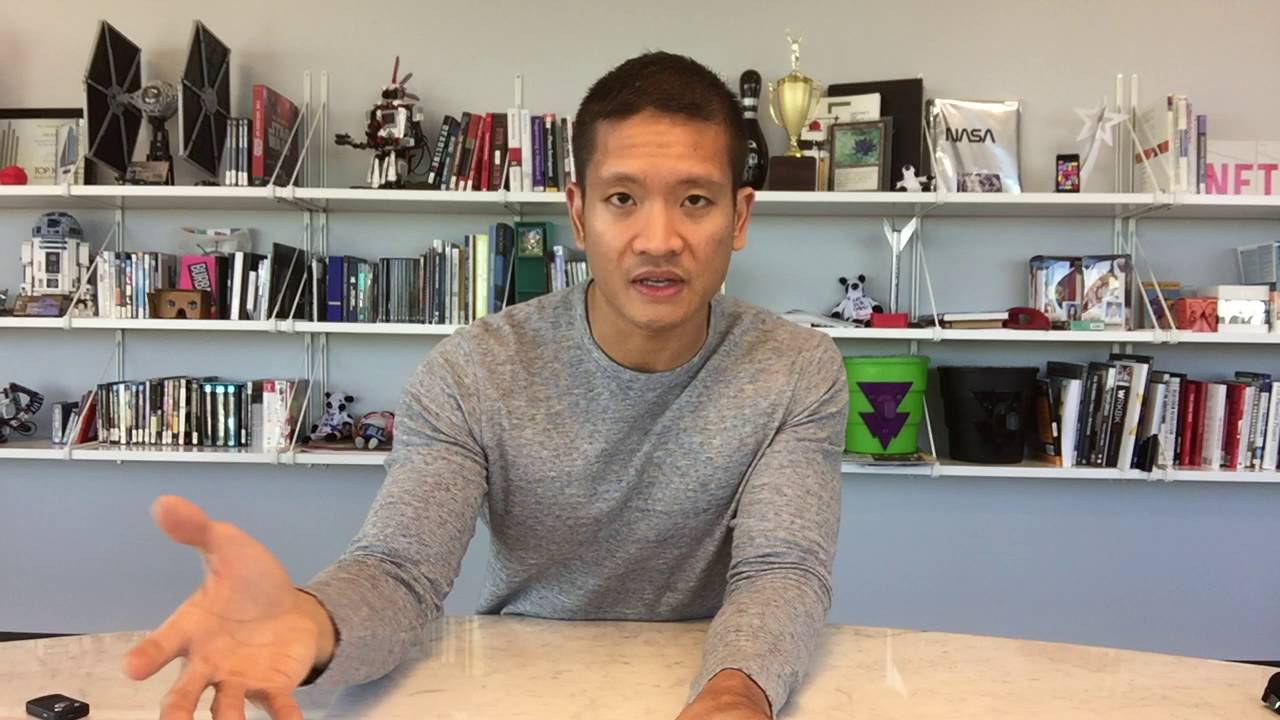
Since then, I have delivered 90 presentations, trainings, and teachings at non-profits, universities and schools, and various interest groups. It’s really become a powerful way to connect with my audiences and get my message out there. It’s allowed me to see that I can use myself and what I’m uniquely good at.
BH – Right on! Okay, so why do you feel speaking is so important for someone – a normal guy coming out of corporate America who may be struggling with stepping up and communicating and getting that kind of attention? Why do you think it’s important to practice your speaking skills or have an understanding of your power when you step out in front a group?
JP – You know, in junior college my speech teacher said, “everyone here, I can guarantee this will be the most important class you will ever take in your entire college career.” And we, of course, all thought she was crazy. Not until probably 10 years into my career did I acknowledge that that’s the truth, man! There are so many benefits to being able to effectively, concisely, and persuasively communicate your ideas. And if you express it on public sort of forum, you kind of become larger than life, like an instant expert even if just in that room.
So yes, it creates the perception of you being that subject matter expert, but I think it also allows you to just be able to effectively communicate and further your idea and agenda in literally any kind of endeavor. Effective communication skills are absolutely paramount in anything you do.
BH – Definitely agree with that. So let’s go back for a second and think about the guy that’s the sort of introvert. Let’s talk about how he finds his voice, so to speak. What are three big tips for him to work on as he makes his way into speaking, whether it’s publicly, or maybe just taking on a platform in his company or relationships?
JP – So here’s a few things: The first thing I would ask him to explore is…
1. Why are you doing this?
A lot of times, if you determine a purpose behind any kind of endeavor, it fuels your action for it. You mention the benefits of public speaking, right? Well, why would you want to learn to speak? Are you trying to get funding for your business? Are you trying to recruit support for your startup? Are you trying to get people on your side of an issue? That would be number one. Figure out why you’re trying to be an effective communicator in the first place.
2. Focus on the message and be yourself
This is the cornerstone of everything I do, and it was told to me by a great public speaker years ago. When I first started speaking, it was all about looking and sounding and being great, and getting the audience to acknowledge how great I was. Coming at it with this arrogant persona, it just didn’t feel authentic to me. A lot of people when they first start speaking are focused on those errors. They focus more on how they are going to perform and less on the message they will have on the audience. They are missing the point of their speech. The point is to deliver value, not perform impressively.
3. There is no substitute for practice
Get your reps in, son. It’s an old sports phrase, but it rings true. You have to get your practice in to be effective. I’m always practicing. I do all sorts of crazy things to practice too. I record myself on my phone, I speak in front the mirror, in the shower, and I’ll even stand on my kitchen table and imagine I’m giving a keynote at Madison Square Garden! I intentionally kind of freak myself out so when the day comes it feels as normal as possible.
BH – That totally makes sense. I was talking to a friend of mine last week about how he can improve his speaking skills and be a better leader in his organization. He gets nervous and doesn’t feel like he has the chops to be an effective speaker. I told him the best thing he can do right now is to focus on your point number 2: focus on your message and be yourself.
I told him to speak to a small group of people (making that group larger each time) and just tell the story of your favorite memory. There is no right or wrong answer, and you will feel comfortable because it’s just the story of you. In fact, it’s one of your favorite memories so you’ll automatically exude an energy that can captivate an audience. From there, it’s just about practicing that story in front of bigger and bigger groups of people. You have to start somewhere though, and focusing on the negative and worrying about being seen as the expert and convincing your crowd is unnecessarily overwhelming this early in the game.
JP – Yes, that’s so key. Someone once asked me how to deliver a good speech and if I ever changed my powerpoint or direction of a speech based on my audience reaction, and my answer is always a resounding no. Because whatever it is I’m presenting, I’m fully congruent with in my message. If someone wants to present a different argument, I am able to have a healthy discussion and present my point because I know my message.
When I show up for a speak, that audience knows that’s what they’re getting from me. I always have a Q&A at the end to discuss ideas, and if someone can enrich me with additional knowledge, then I’m totally open to feedback.
BH – Okay cool. So from the top, the three keys you’d share are:
- Understand why you want to speak
- Know your message and be yourself
- Get your reps in – practice
JP – Yes, definitely. And you know, the more and more that I speak, the more I realize it’s kind of like and art and a performance. As I continue to follow what I love and what feels most natural, I’ve found a lot of opportunities I would not otherwise have, only because I stayed true to myself, honored my unique gifts, and continue to practice constantly. I treat every speech like a kind of performance, and I make sure, just like an actor or athlete, to practice my craft before “game day” so I’m totally prepared when it’s my turn to step up.
Now, I’ve met a few professional speakers that don’t do this, don’t practice. For them it works. For the rest of us mere mortals, our performances are greatly benefitted by how much practice we put into them.
BH – Yes, this is very important for everyone listening to know and understand. Gentlemen, get familiar with Malcolm Gladwell’s Outliers, in that, these few speakers that don’t practice are the anomalies. They are the 1% that doesn’t have to do anything and are naturally gifted in everything they attempt. They are the outliers. You and I, and nearly everyone else, must put in the work.
JP – 100%
BH – So what’s the one thing you want to leave people with to maybe inspire them to keep pushing forward?
JP – You know, this is going to sound super corny, and I’m super corny I guess. So I went to a National Speakers Association [NSA] meet-up and Tami Evans was talking about one of her most nerve-wracking speaks ever. She was the keynote for the NSA and was backstage trying to calm her nerves just before going on stage. She was on the verge of a breakdown when the person that invited her there, and was just about to hit the stage and introduce her, noticed her and recognized she was visibly nervous.
She says he walked back to her, took her hands, looked her in the eyes, and said, “love your audience. Love your audience, Tami. And remember you’re doing this not for your own vanity, but truly in service to make them better.”
[bctt tweet=”Secret to better speaking: Love Your Audience. Bring value to them & they’ll value you. – Julian Placino” via=”no”]Truly, Blake, when I make that shift, that’s when I become unstoppable. That’s when my passion, my soul, my heart, they all come together to tell stories that resonate and really serve my audience. That’s what I want to leave with anyone that might be struggling with public speaking is to truly just love your audience.
BH – Man, what’s so cool about moments and opportunities like this interview is that I occasionally get hit in the face with a lesson that I know I can apply to my own speaks and presentation woes. That’s big for me personally, because I want the audience to love me, but this idea helps me see that just loving my audience first allows me to deliver better value without conditions. It will make me better. That’s powerful stuff!
JP – Yeah, and you know what, it’s really the law of reciprocity. It’s no longer intellectual to me, I’ve actually experienced this! When I love someone first, they in turn, love me. I can’t remember who told this to me, I’m bad with quoting people, but I learned in order to be interestING to other people, you must first be interestED in other people. And that’s the truth.
Whatever you first put out in the world, to the Universe, to God, it will come back to you, but it starts with service first. It starts with you putting in the work and putting out value. Once you love your audience and really deliver a performance loving them, they will in turn, come back loving you.
BH – Outstanding place to end, Julian. Man, we could go on for days with stories and best practices to share. Thank you so much for being a guest on The Sharp Gentleman podcast, my friend. I can’t wait to hear what value you deliver next, and I always look forward to connecting. Gentlemen, make sure to check out Pathways to Success with Julian Placino on iTunes and Stitcher – you won’t be disappointed.
JP – Thank you, Blake. It’s been a pleasure. Thank you for this invitation, it’s been awesome!
What a show, right?!? What takeaways resonate with you the most?
Which of the keys discussed do you feel will have the biggest impact for you?
Let me know in the comments below! And remember to SUBSCRIBE to the podcast!

